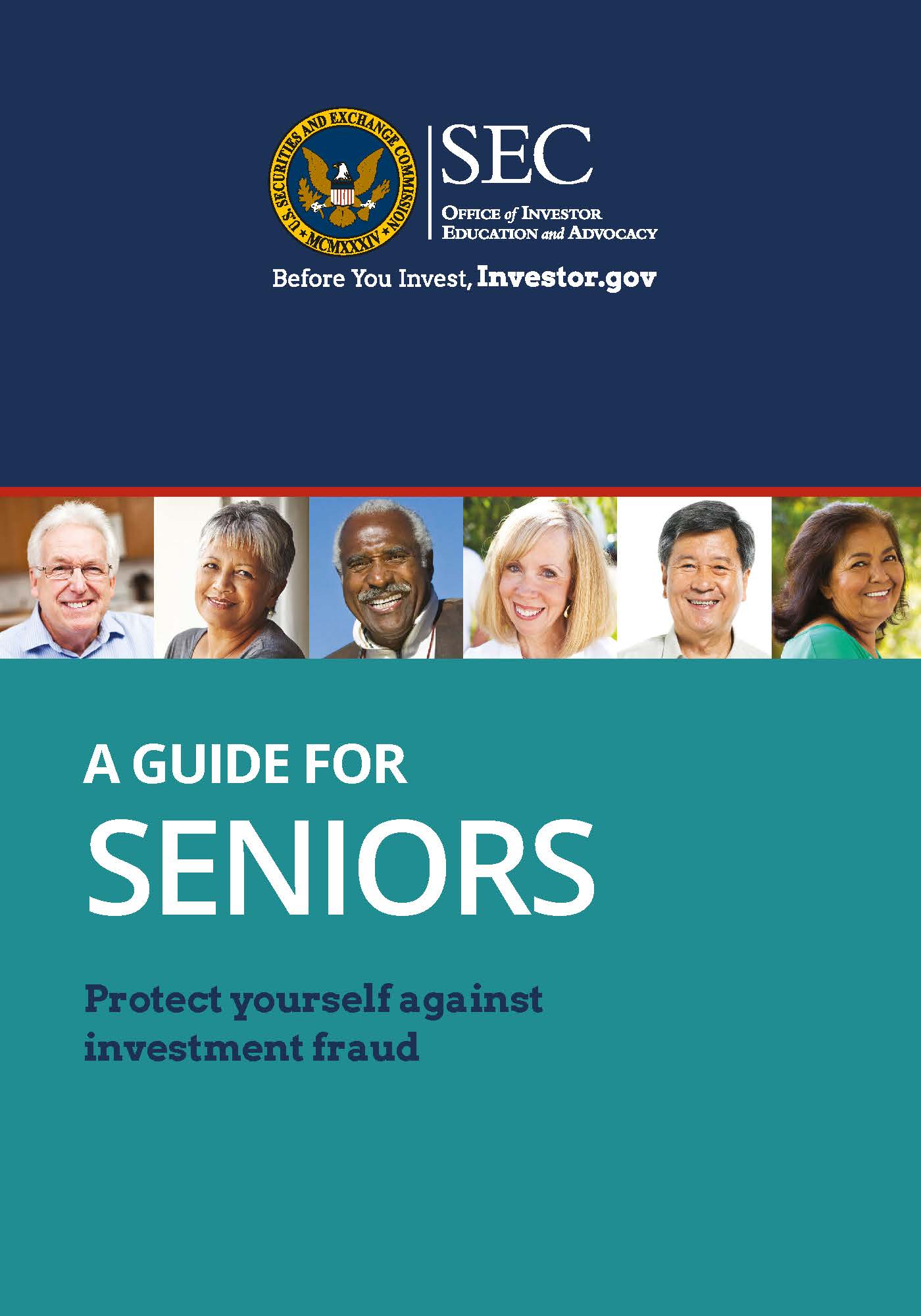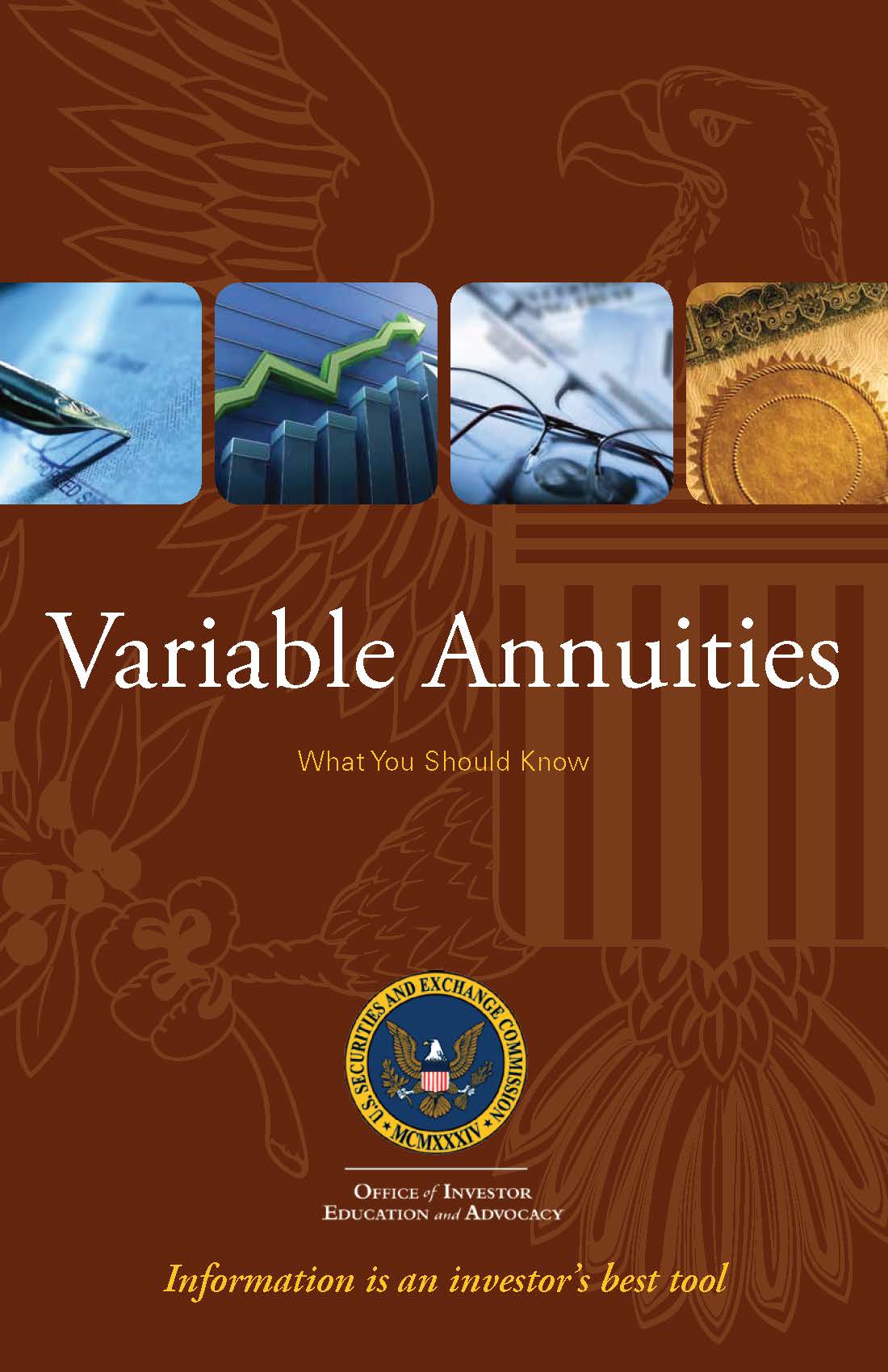Because seniors have built up a lifetime of savings, they continue to be the targets of individuals recommending investments that are fraudulent or unsuitable for their particular financial needs. Investors 55 years and older should carefully research the credentials of anyone claiming to be a "senior specialist."
While there are legitimate organizations that require completion of rigorous programs of study and examinations as well as practical experience for certification, a number of organizations have been formed with less stringent qualifications and preparation. The designation may, in some cases, consist of training that involves nothing more than marketing techniques and sales tips for certain investment products being targeted to seniors. In fact, the individuals touting these investments may not be registered or licensed to sell securities or give financial advice at all.
Take the time to determine the education and experience requirements by contacting the organization that issued the credential. Then utilize the "Understand Professional Designations" database located in the Investor section of www.finra.org. It can provide a snapshot description of over 100 designations, including some senior ones. Note that the database is not comprehensive and does not
allow comparison of designations.
For licensing purposes, the state of Arizona recognizes the following designations:
Most importantly, ask and check with the Investigator on Duty at the Commission's Securities Division to determine license status and disciplinary history of an investment promoter and company.
A Guide for Seniors: Protecting Yourself Against Investment Fraud
Knowing how to spot a con game is essential to protecting your nest egg. This A Guide for Seniors-SEC, published by the U.S. Securities and Exchange Commission (SEC), discusses important topics you need to consider and the investor resources available to you.

Among the topics discussed:
You can also visit investor.gov to gather other information on wise investing and fraud prevention.
 Con artists. They're masters of persuasion, using words instead of weapons to separate you from your money. They may ask you some background questions about your health, family, political views, hobbies or prior employers. Once they know which buttons
to push, they'll bombard you with a flurry of persuasion tactics, which can leave even the savviest person in a haze. Remember, the difference between a legitimate deal and fake one is that the real deal will be there tomorrow. No matter how persuasive
the sales pitch might be, employs the following basic defense strategy:
Con artists. They're masters of persuasion, using words instead of weapons to separate you from your money. They may ask you some background questions about your health, family, political views, hobbies or prior employers. Once they know which buttons
to push, they'll bombard you with a flurry of persuasion tactics, which can leave even the savviest person in a haze. Remember, the difference between a legitimate deal and fake one is that the real deal will be there tomorrow. No matter how persuasive
the sales pitch might be, employs the following basic defense strategy:
Develop a refusal script. Practice saying "no." By practicing the actual words, it becomes easy to simply say, "I'm sorry, but I'm not interested. Thank you." Or tell the pushy salesperson who is offering the investment, "I never make investing decisions without first consulting my _____." Fill in the blank with a trusted, objective third party such as an attorney, accountant or family member who is knowledgeable in money matters.
Ask and check with a securities regulator.
Ask the salesperson if he or she is registered with a securities regulator. If not, ask, "Why not?" Verify the answers by contacting a licensed securities lawyer who can validate the exemption. Most importantly, verify the salesperson's license status and disciplinary history by contacting the Securities Division's Investigator on Duty.
Read more smart tips for older investors, courtesy of FINRA.
Have you ever received a postcard or letter advertising a free meal with a financial seminar? The advertisement may promise you'll take home some educational information and enjoy a fancy meal. During or following the seminar, the seminar presenter may raise fear that you may outlive your financial resources, and after a review of your current list of assets, recommends a liquidation of your current investments in order to purchase an annuity or some other high-fee, high-commission investment product.
To avoid the heartburn of a fraudulent or unsuitable investment, consider the following do's and dont's:

Read more information about attending a free meal seminar. Courtesy of the North American Securities Administration Association (NASAA), you can also find resources for mature investors at visit ServeOurSeniors.org. Get more general information about wise investing and fraud prevention.
Other Resources:
"How to Spot a Free Lunch Scam" courtesy of AARP and a FINRA non-profit, saveandinvest.org
 A variable annuity is a contract between an investor and an insurance company where, in return for a lump sum payment or a series of premium payments, the insurance company agrees to pay to the investor a lump sum or a stream of income based upon the
performance of an investment account (stocks, bonds or other types of investment products), less any applicable charges and fees. Because your investment account is subject to the ups and downs of the securities markets, the value of your variable
annuity can vary.
A variable annuity is a contract between an investor and an insurance company where, in return for a lump sum payment or a series of premium payments, the insurance company agrees to pay to the investor a lump sum or a stream of income based upon the
performance of an investment account (stocks, bonds or other types of investment products), less any applicable charges and fees. Because your investment account is subject to the ups and downs of the securities markets, the value of your variable
annuity can vary.
Is a variable annuity right for you? To answer this question, you should carefully consider a variety of factors--your financial goals, investment amount, timing and holding period of the annuity. Be aware that variable annuities are not liquid investments, but are designed to be long-term investments associated with surrender penalties if you need to withdraw your money before the annuity contract has matured.
Also, contact your tax professional about any possible negative consequences of buying or switching to an annuity from another type of investment; or if the annuity interferes with your eligibility for medical care or housing assistance programs.
Before signing on the dotted line, verify the license status of the variable annuities salesperson by contacting the Securities Division's Investigator on Duty. Annuities, insurance producers/agents and insurance companies are regulated by the Arizona Department of Insurance and Financial Institutions, (602) 364-3100 or Toll-free 1-800-325-2548.
Read more about variable annuities before you invest to protect yourself against deceptive sales practices.
The M oney Smart for Older Adults Program raises awareness among older adults and their caregivers on how to prevent elder financial exploitation and encourage advance planning
and informed financial decision-making.
oney Smart for Older Adults Program raises awareness among older adults and their caregivers on how to prevent elder financial exploitation and encourage advance planning
and informed financial decision-making.
Developed by the Federal Deposit Insurance Corporation (FDIC) and the Bureau of Consumer Financial Protection, the curriculum consists of an Instructor Guide, PowerPoint slides, and a take-home resource guide. This program is available in English and Spanish.
This free resource discusses the following topics:
Download the materials at Money Smart – Teach – For Older Adults (catalog.fdic.gov).
